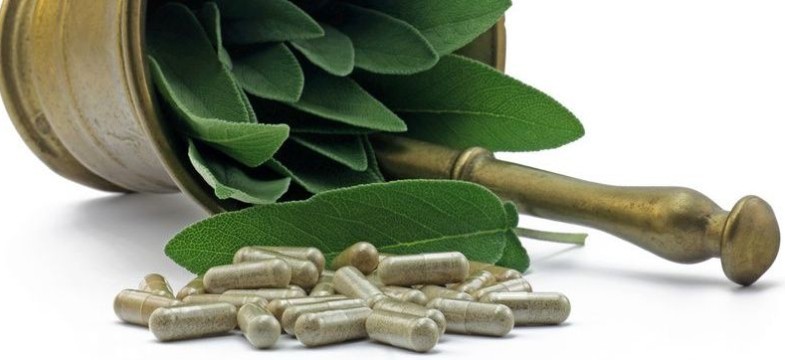Vitamin B12 Capsules – High Purity
Contents
|
Capsules are one of the most popular forms of vitamin B12 supplements alongside pills and injections. Their main advantage is their high purity; in contrast to pills, capsules are produced with almost no additives and most contain only the active ingredient and plant-based cellulose. Most vitamin B12 capsules are vegan, which is why they are very popular with vegetarians and vegan in particular.
What is more, the effectiveness of oral supplements is very well documented and can replace the need for treatment with injections, in many cases (1). Capsules are thus the option of choice for all people who wish to take vitamin B12 supplements with only the pure active B12 and want to avoid the superfluous and controversial flavourings and colourings that are found frequently in vitamin B12 pills/lozenges.
Active Ingredients
As with all supplements, various types of capsules are available containing different vitamin B12 active ingredients. Nonetheless, there are four main options, summarised in the table below.
Form | Description | Further Observations | For whom is it suitable? |
An artificial form of vitamin B12, which almost never occurs naturally in the body. It cannot be used directly by the body, but must first be converted into another form. Very stable and easy to produce | In the body, it is transformed into one of the natural B12 forms plus cyanide. It is therefore not suitable for smokers. If detoxification is required, another ingredient should be chosen. There are many metabolic steps required in the body to convert cyanocobalamin into usable B12 | Cheaper and older ingredient, therefore very well researched. Suitable for covering the daily requirement in healthy people. Not suitable for smokers. Should not be used for detoxification | |
Coenzyme B12. Bio-identical form of B12, as it circulates in the body. Can be utilised without conversion. Somewhat unstable | Good bioavailability, therefore common in supplements. Often used for detoxification | Relatively expensive. Suitable for all applications | |
Coenzyme B12. Bio-identical form of B12, as it occurs in the body’s stores and the mitochondria. Can be directly used without conversion. Somewhat unstable | Good bioavailability, but much rarer than methylcobalamin, since it is harder to produce | Relatively expensive. Recommended for all applications | |
Hydroxocobalamin | Form of vitamin B12 as it is found in many foods. Can be utilised very well, although not directly. Very stabile | Easy to use, very good depot effect. Administered for detoxification | Very good for refilling the body’s stores and during detoxification. Recommended for all applications |
The Right Dosage
When comparing different vitamin B12 capsules, it becomes immediately apparent how different the dosages can be: the range spans from 3 µg to 5000 µg. Which dosage is the right one depends greatly on the individual context and above all on the type of application needed.
After a long period of vitamin B12 deficiency, the body’s store of B12 is completely depleted and must be rapidly refilled. To this end, a large dosage of B12 should be taken over a period of one or two months; here it is not sufficient to simply cover the daily requirement of 3 µg. In this instance, supplements containing a very high B12 dosage are useful.
Even to cover the daily requirement of 3 µg it is not enough to simply take this amount in a single dose. This is due to the way in which the vitamin is absorbed: a maximum of 1.5 µg per dose is taken in via the intrinsic factor (IF), a particular transport protein. A further 1% of the dose is obtained through passive diffusion in blood circulation (2). For all doses greater than 1.5 µg, the actual intake can be roughly calculated as follows:
Intake = 1.5 µg + dose/100
(E.g. for 500 µg: 1.5 µg + 500/100 = 6.5 µg)
Since IF recovers after a few hours, multiple intakes of 1.5 µg can be absorbed across the day. Those who want to meet the daily requirement with as small a B12 doses as possible, should therefore distribute their intake into three parts taken at intervals throughout the day.
For different applications, the following dosages are recommended:
Application | Dosage | Intake |
Filling the body’s stores | 1000 – 5000 µg daily | 11 – 51 µg |
Covering the daily requirement | 3 x 3 – 5 µg or | 3 – 7 µg |
For absorption disorders | 300 – 2000 µg | 3 – 20 µg |
For for information here, see our article: Vitamin B12 Dosages
High Dose Vitamin B12 Capsules?
Many supplement manufacturers offer high dose vitamin B12 capsules. These however only really make sense if used in initial therapy following a deficiency. Here, as large a dose of B12 as possible enter the blood via passive diffusion to quickly replenish the body’s stores. But such high dosage capsules are no longer useful for simple vitamin maintenance, as any excess B12 is excreted unused.
For anaemic patients with proven absorption disorders, supplements containing between 1000 – 2000 µg are administered. Here only supplements containing 300 µg or more have been shown to take effect (3). For healthy people with fully-functioning gastrointestinal tracts, daily doses of 1000 µg are unnecessarily high.
Vitamin B12 Overdose
There is no risk of vitamin B12 overdose; the vitamin is completely harmless as excess amounts are quickly excreted. However, in order to protect the kidneys and the sensitive vitamin balance in the body, it is advisable to take only enough B12 as required. A “more is more” approach is not useful in vitamin therapy.
Are Vitamin B12 Capsules Vegan?
The majority of capsules are vegan. In most, both the capsule shell and filler substance are made from forms of plant cellulose. Occasionally the shell is made of animal gelatine and even more rarely the capsule contains an ingredient that is not vegan. This is true, for example, of supplements containing intrinsic factor.
How Should Capsules be Taken?
In order to avoid interaction with other foods and to ensure optimal absorption, capsules should not be taken directly with meals, but at certain intervals. They are best consumed first thing in the morning or just before bed.
Additives
As we have discussed, in contrast to vitamin B12 pills, which often contain a range of additives, vitamin B12 capsules are often very pure. Nonetheless, here is an overview of the most commonly added ingredients in capsules.
Added Ingredient/Additive | Comments |
Cellulose (E 460) | Harmless plant-based additive, excreted unused by the body |
Microcrystalline cellulose | Like cellulose, can however pass through the intestinal wall, negative consequences have not been recorded |
Hydroxypropylmethylcellulose – also: hypromellose/HPMC (E 464) | Like cellulose |
Magnesium stearate, magnesium salt of fatty acids (E 470 b) | Magnesium compounds of saturated fatty acids, may be of plant or animal origin, possible genetic engineering, studies have shown it to have an adverse effect on the release of the active substance |
Ascorbyl palmitate (E 304) | Considered harmless, breaks down in the body into ascorbic acid (vitamin C) and palmitic acid or stearic acid |
Stearic acid (E 570) | Saponification from plant or animal oils and fats, possible genetic engineering |
Silicon dioxide (E 551) | Made from sand, harmless, also approved for organic products |
Glycerin (E 422) | Chemically synthesised or plant-based |
Vitamin B12 Capsules: The Standard for Oral Supplements
Despite the widespread use of lozenges and chewable tablets – which are often more appealing in terms of taste and sometimes even look like sweets – capsules remain the standard for oral B12 supplements. For people wanting to take just the pure active ingredient, capsules are the best choice. What is more, vegetarians and vegans can find a particularly wide selection of products, which definitely contain no animal products.
Shopping Suggestion (Advertisement)
A good online Shop for vegan vitamin B12 Capsules is Sunday Natural
Sources:
- Andres, E., Dali-Youcef, N., Vogel, T., Serray, K. and Zimmer, J. (2009), Oral cobalamin (vitamin B12) treatment. An update. International Journal of Laboratory Hematology, 31: 1–8. doi: 10.1111/j.1751-553X.2008.01115.x
- Berlin H, Berlin R, Brante G . Oral treatment of pernicious anemia with high doses of vitamin B12 without intrinsic factor. Acta Med Scand 1968;184:247-258
- Eussen SM, de Groot LM, Clarke R, et al. Oral Cyanocobalamin Supplementation in Older People With Vitamin B12 Deficiency: A Dose-Finding Trial. Arch Intern Med. 2005;165(10):1167-1172. doi:10.1001/archinte.165.10.1167.


